We look back at some of our accomplishments in the second half of 2024. Take a look at highlights from the first half of the year here.
July
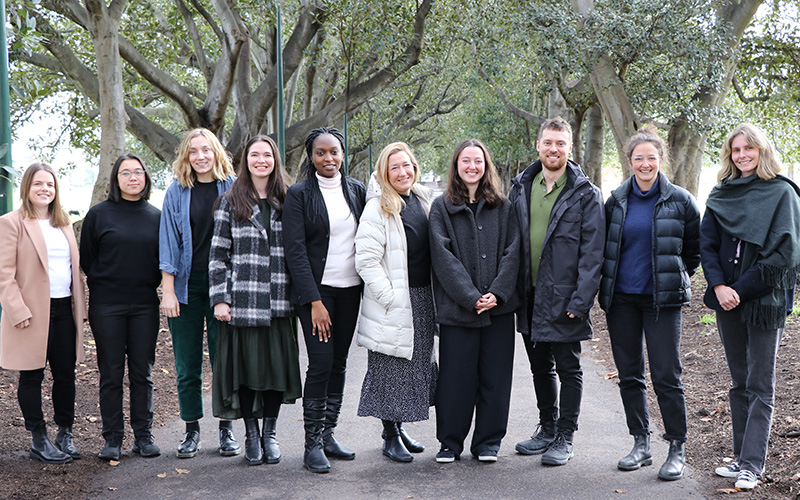
In July, we celebrated staff contributions and the importance of fostering global collaborations with the Burnet Travel Awards.
We were granted A$274,000 from the Australian Government’s Medical Research Future Fund (MRFF), for the ‘Harnessing effective approaches for long COVID' (HEAL) project, to design a clinical trial for the rapid assessment of novel therapies for long COVID.
We launched our Commitment to Action: Burnet Disability Plan 2024-2027 as part of our dedication to removing barriers and promoting equal opportunities at the Institute.
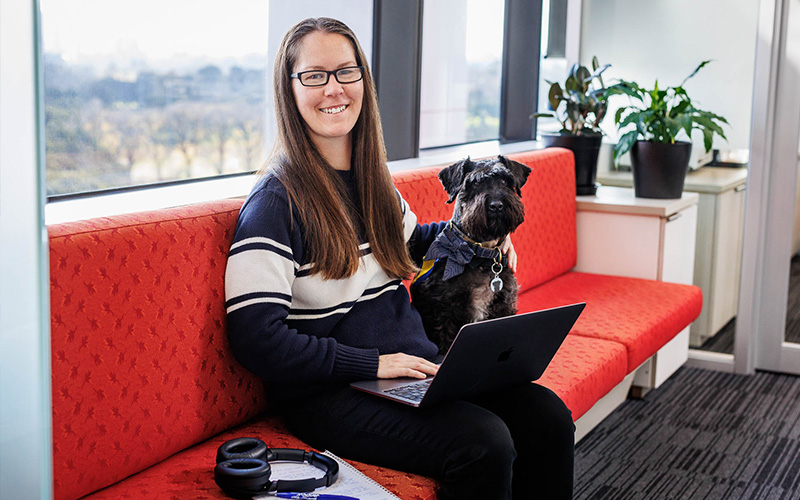
We also welcomed the Victorian Government's $9.87m investment in the Pathway to Clean Indoor Air project to improve indoor air quality management.
August
Burnet, in partnership with the Vanuatu Ministry of Health, launched the Protektem Pikinini Blong Yu (Protect Your Child) study to investigate the effectiveness of antiviral prophylaxis in preventing hepatitis B mother-to-child transmission.
We announced the RID-TB Fellowship for PNG clinicians to enhance their skills in managing tuberculosis, especially multidrug-resistant TB (MDR-TB). Fellowships were supported by funding from the Australian Government through the Papua New Guinea-Australia Partnership, the Western Provincial Health Authority (WPHA) and other public health authorities across PNG.
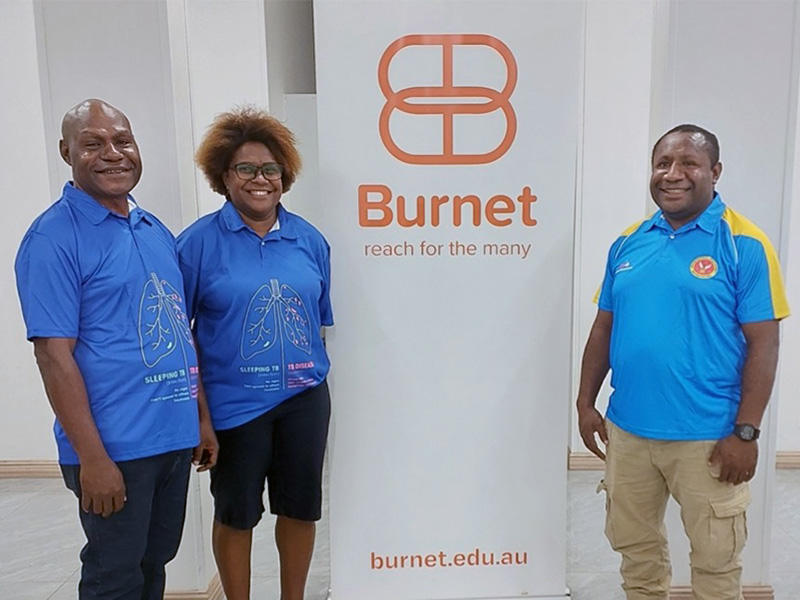
September
Researchers from the Alcohol and Other Drugs working group, alongside our collaborators, found most Australians supported supervised injecting facilities, with opposition to the facilities having steadily declined during the past 20 years. Supervised injecting facilities reduce overdose deaths and harms related to injecting drug use.
Burnet researchers also released a study that found simple infection control measures could limit the spread of COVID-19 and reduce costs for hospitals. These include testing patients for COVID-19 on admission, requiring staff to wear N95 masks in clinical areas and using Rapid Antigen Tests (RAT) or Polymerase Chain Reaction (PCR) tests to prevent transmission.
October
We announced our collaboration with Atomo Diagnostics on a rapid syphilis test, supported by $2.44 million in Australian Government funding to advance its development.
The lateral flow test, developed by Burnet, uses a finger prick blood sample and a syphilis antibody assay to detect active syphilis infection and can be used in clinical settings as well as for at-home self-testing.
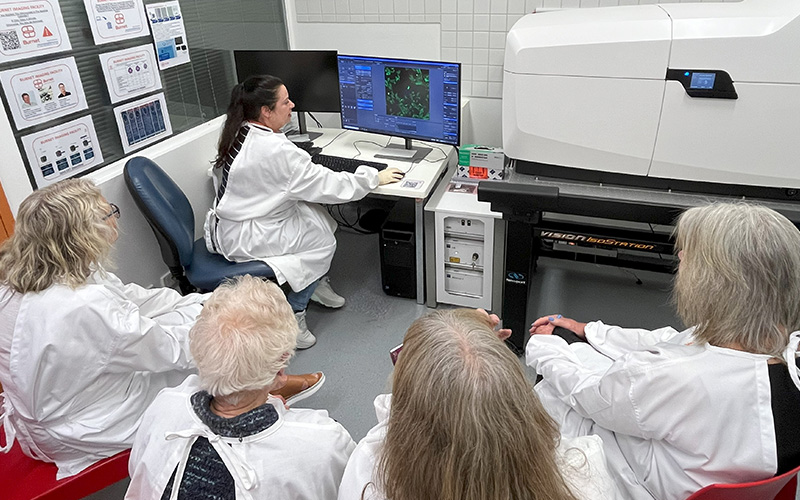
Thanks to Burnet supporters, we purchased a ZEISS Cell Discoverer 7, a high-content imaging microscope for our Cell Imaging Facility. This cutting-edge technology allows our scientists to capture extraordinarily detailed images at unparalleled speed and magnification.
The microscope will help accelerate breakthroughs in our labs, and drive innovation in our fight against infectious diseases, including malaria, COVID-19, and HIV.
November
We welcomed the Australian Government-funded Australia Awards Fellowship recipients from Thailand for two weeks of professional development at Burnet, focusing on harm reduction to prevent HIV and viral hepatitis.
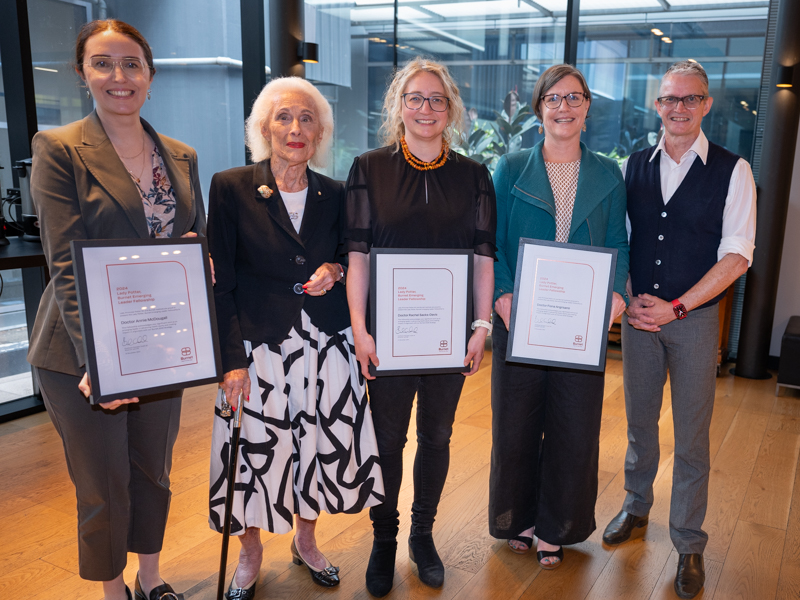
Burnet was honoured to welcome Lady Primrose Potter AC to the Institute to award three Emerging Leader Fellowships to worthy recipients.
The inaugural fellowships will allow the researchers to continue their vital work in vector-borne disease transmission, global maternal health and HIV and hepatitis C elimination.
Congratulations to Dr Julie Hennegan, senior research fellow and co-head of the Global Adolescent Health working group on receiving this year’s Gust-McKenzie Medal and to Dr Phone Myint Win, Burnet country representative in Myanmar, on receiving the Frank Fenner Award — our most significant annual awards.
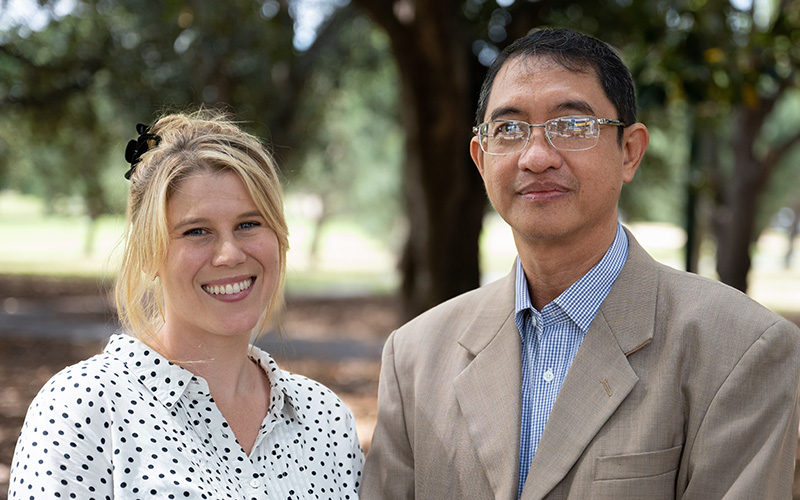
December
Burnet researchers and collaborators gained new insights into the underlying factors contributing to the alarmingly high rates of HIV and sexually transmitted infections among adolescent girls and young women in South Africa. These include a range of underlying socio-behavioural and biological factors, including perceived risks, gender dynamics and asymptomatic infections.
A world-first study by Burnet researchers on menstrual cup use in real-world settings found young people often encounter difficulties and discomfort, which can discourage continued use. This highlights the need for better education and support.
We look forward to continuing our work in improving health equity through research and collaboration.
Our achievements would not be possible without the dedication and hard work of our support staff, whose contributions behind the scenes ensure our continued success.
